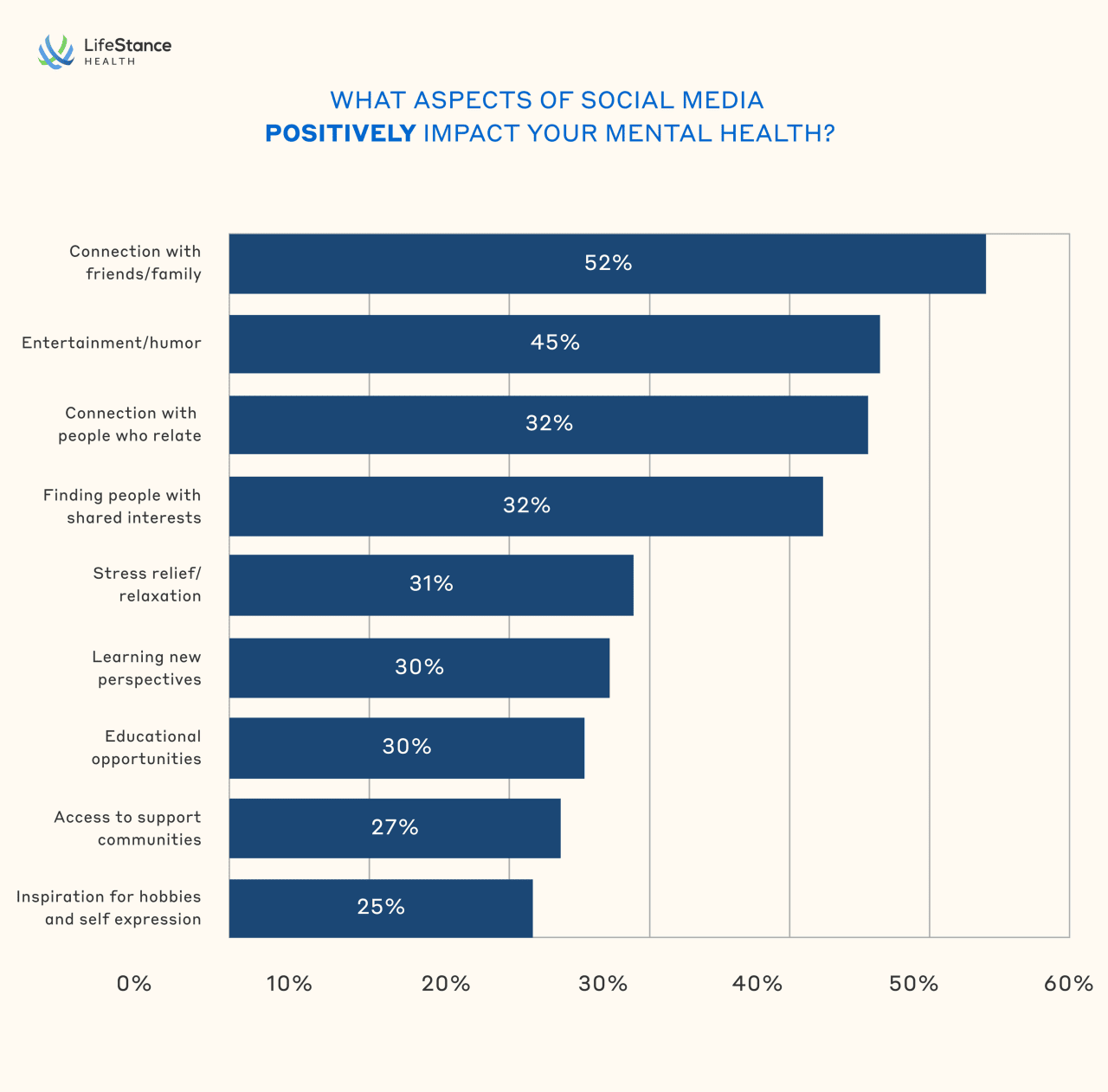Study reveals surprising mental health benefits of social media
Lifestyle

Audio By Carbonatix
9:30 AM on Wednesday, September 24, 2025
By Dovie J. Villalobos, LSW, PEL, CADC for LifeStance Health, Stacker
Study reveals surprising mental health benefits of social media
The impact of social media frequently sparks controversy, with headlines often highlighting negative effects such as anxiety, cyberbullying, misinformation and addiction concerns. The issue has even prompted significant action, including a proposal by the former U.S. Surgeon General to add warning labels to social media platforms due to potential mental health risks. Yet amidst these legitimate concerns, recent research conducted by LifeStance Health and titled Navigating Mental Health in the Age of Social Media, offers another important perspective by highlighting several positive effects of social media on mental health.
The study summarizes both positive and negative aspects impacting respondents' mental health, highlighting that social media can foster support and learning, yet also fuel anxiety or overwhelm and disrupt sleep. Let's focus on the positive impacts of social media, which seem to receive less attention.

Benefits of social media: Reducing loneliness and enhancing connections
One key benefit of social media is its ability to reduce loneliness by helping individuals build and maintain meaningful connections. The report found that 52% of respondents across various age groups felt social media positively affected their mental health by keeping them connected with friends and family.
Individuals frequently use platforms like Facebook, Instagram and specialized online forums to gain emotional support and feel connected. This was particularly important during the COVID-19 pandemic when traditional face-to-face interactions were limited. As a result, we’ve heard reports about reduced anxiety and improved emotional health by engaging with supportive online communities.
Creative self-expression: discovering your identity and building confidence
Social media often provides significant benefits for mental health by facilitating creative self-expression and identity development. According to the LifeStance survey, 32% of respondents felt social media helped them connect with others who share their interests, enhancing their ability to express themselves authentically.
Posting artwork, writing and personal reflections allows individuals to express emotions clearly and receive validation from their communities, often significantly boosting self-esteem and fostering a strong sense of identity.
Mindful social media use: Turning risks into positive outcomes
Although social media can present risks, mindful and intentional use can turn it into a valuable mental wellness tool. Therapists can guide individuals toward healthier social media interactions by helping them set clear boundaries, engage positively and maximize benefits.
By emphasizing supportive connections, creative self-expression and mindful engagement, social media can shift from a potential source of stress to a valuable resource for mental health support.
This story was produced by LifeStance Health and reviewed and distributed by Stacker.

























